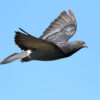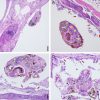
Herpesvirus in Racing Pigeons
Herpesvirus in Racing Pigeons: What Every Fancier Needs to Know
When it comes to the health of racing pigeons, few diseases can be as silent and damaging as Herpesvirus infection. Often misunderstood or misdiagnosed, Pigeon Herpesvirus (PHV) is more common than many pigeon keepers realize. And because it can linger in a loft without obvious symptoms for long periods, early detection and prevention are crucial for maintaining a healthy, high-performing flock.
In this in-depth guide, we’ll walk you through what Herpesvirus is, how it affects racing pigeons, signs to look for, treatment options, and how to prevent outbreaks in your loft. Whether you’re a seasoned fancier or just getting started, this post will give you practical tools to protect your pigeons and support peak performance throughout the year.
What Is Herpesvirus in Racing Pigeons?
Herpesvirus in pigeons, scientifically known as Columbid Herpesvirus-1 (CoHV-1), is a contagious viral infection that primarily affects the upper respiratory and nervous systems of pigeons. It belongs to the herpesviridae family, which includes viruses known for their ability to lie dormant (latent) in a host’s body and reactivate under stress.
PHV tends to hit young pigeons the hardest—especially after weaning, during transport, after vaccination, or during racing season—times when the immune system is under pressure. Once infected, a pigeon can remain a carrier for life, silently spreading the virus through saliva, feces, and respiratory droplets.
How Do Pigeons Get Herpesvirus?
Pigeons typically contract Herpesvirus through:
-
Direct contact with infected birds
-
Shared feed and water sources
-
Inhalation of airborne particles in crowded lofts
-
Stress (which weakens immunity and triggers viral reactivation)
One of the most dangerous aspects of PHV is that it often piggybacks with other infections like circovirus, adenovirus, or E. coli, making diagnosis and treatment more complicated.
Common Symptoms of Herpesvirus in Racing Pigeons
Many pigeons infected with Herpesvirus will not show symptoms right away. However, when the virus becomes active, here’s what to watch for:
-
Nasal discharge and sneezing
-
Watery or inflamed eyes
-
Difficulty breathing
-
Swollen eyelids or sinus area
-
Lethargy and reduced flight performance
-
Loss of appetite
-
Greenish or watery droppings
-
Neurological signs such as head tilting, unsteady balance, or tremors (in severe cases)
It’s worth noting that Herpesvirus often presents with symptoms similar to other respiratory diseases like Mycoplasmosis or Paramyxovirus (PMV), so lab testing (PCR or ELISA) is the most reliable way to confirm infection.
How Herpesvirus Affects Racing Performance
Even mild respiratory irritation can hinder a racing pigeon’s aerodynamics and oxygen intake, two factors critical for high-speed flight. When Herpesvirus is active, it not only suppresses overall energy and stamina but also causes pigeons to drop out of races or perform inconsistently.
In chronic cases, recurring flare-ups—especially during racing or breeding season—can derail a loft’s entire performance schedule. That’s why early intervention and preventive care are essential.
Treatment Options for Herpesvirus in Pigeons
There’s no direct cure for Herpesvirus, but supportive treatments can reduce symptoms, control secondary infections, and strengthen the pigeon’s immune system. Here’s what many experts recommend:
1. Antiviral and Immune Support Supplements
While antivirals for pigeons are limited, some pigeon-specific products support the immune system:
-
Herbal antiviral formulas
-
Lysine supplements (known to inhibit herpes replication)
-
Multivitamin blends with vitamins A, C, and E
2. Antibiotics for Secondary Infections
Because PHV often opens the door for bacterial infections (e.g., E. coli or Streptococcus), antibiotics like Doxycycline or Enrofloxacin may be prescribed for short-term use. These must be used under a vet’s guidance.
3. Supportive Products from PHP (Performance Pigeon Health)
PHP offers a variety of targeted supplements that can help infected pigeons recover faster and reduce viral reactivation:
-
PHP Respiratory Aid – Helps clear mucus and supports lung health
-
PHP Immune Booster – Enhances natural defenses during stress
-
PHP Digestive Support Formula – Helps prevent secondary gut infections
-
PHP Molting Kit – Especially helpful during seasonal molt, a time when latent viruses may reactivate
These products are designed with the racing pigeon in mind, making them safe and effective for year-round use.
Preventing Herpesvirus in Your Loft
Prevention is always better than treatment—especially with a virus that can go dormant and resurface at any time. Here are key steps to protect your flock:
Quarantine New Birds
Always isolate new pigeons for at least 2–3 weeks before introducing them to your loft.
Clean Regularly
Disinfect perches, feeders, drinkers, and loft flooring at least once per week with a pigeon-safe disinfectant.
Avoid Overcrowding
Too many birds in one space can stress the flock and increase the chance of transmission.
Boost Immunity Year-Round
Use immune-boosting supplements during stressful periods like weaning, molting, and racing.
Control Loft Stress
Keep transport, race prep, and breeding environments as stress-free as possible. Avoid loud noises, sudden temperature changes, or unnecessary loft changes.
Follow-Up Care for Recovered Birds
Once a bird has recovered from a Herpesvirus flare-up:
-
Keep it isolated for 2 weeks to ensure no active viral shedding
-
Maintain regular supplement support to strengthen immunity
-
Consider routine PCR testing if racing at a competitive level
Even asymptomatic carriers can re-infect loft mates under stress, so post-recovery management is key to keeping your loft virus-free.
Can You Vaccinate Against Herpesvirus?
Currently, there is no widely available or approved vaccine for pigeon Herpesvirus. However, research into pigeon-specific vaccines continues in Europe and Asia. Some breeders use poultry vaccines “off-label,” but this is risky and should only be considered under veterinary guidance.
Final Thoughts
Herpesvirus in racing pigeons may not be as instantly dramatic as other diseases, but its long-term impact on health, breeding, and racing success cannot be underestimated. With a combination of early detection, immune support, stress management, and loft hygiene, you can keep your flock healthy and minimize the risk of outbreaks.
Don’t wait for symptoms to appear—be proactive. Use trusted products like PHP Respiratory Aid, PHP Immune Boosters, and other health support formulas to stay ahead of this persistent virus and give your pigeons the best chance at a winning season.
“Until Next time Keep Them Healthy And Flying”



